By Randal O’Toole
Executive Summary
The pandemic has made it painfully clear that TriMet’s business model is hopelessly out of date. Trends that began decades ago—the dispersion of jobs and residences, telecommuting, and growing automobile ownership—were accelerated or at least continued by the pandemic. Yet TriMet, the Portland area’s largest transit agency, still operates a route structure that was designed for the early 1900s.
Prior to the pandemic, instead of updating TriMet’s business model, Metro and TriMet attempted to redevelop the Portland area to look more like it did in 1910, using the urban-growth boundary to increase overall population densities and transit-oriented developments to increase densities at the city center and along major transit corridors. Yet, they can’t reverse the trends that made TriMet’s route structure obsolete: the dispersion of jobs from downtown, near-universal automobile ownership, and the automobile’s huge advantages over traditional transit in terms of speed and access to the entire urban area.
Metro and TriMet’s biggest mistake was to rely on Big-Box Transit—transit vehicles with high capacities but whose route capacities are often low—that is expensive to build, inflexible in the face of rapidly changing transportation patterns, serves only a small portion of the urban area, and doesn’t really make sense in a region whose jobs are finely distributed across the landscape rather than concentrated in a single downtown. While light rail has been particularly expensive, the Westside Express Service (WES) is almost a parody of this problem, costing $7.5 million a year to operate and never generating enough fares to cover much more than 8 percent of its operating costs.
Data showing transit’s share of commuting reveals how badly TriMet’s overall system was working before the pandemic. While TriMet carried 42 percent of downtown workers to and from their jobs in 2018, downtown held less than 10 percent of all jobs in the urban area. Outside of downtown, TriMet carried just 3.4 percent of workers to and from their jobs. Though Portland has been celebrated as “the city that loves transit,” the reality is that TriMet provides terrible service to 90 percent of the region’s workers and job centers.
The pandemic drastically reduced downtown’s role as a job center, and it may never recover many of its former workers who are now productively employed at home. The high-income workers who once rode light rail are now working at home, while low-income workers who once took the bus have increased their automobile ownership and reduced their dependence on transit. Ridership may never recover, yet TriMet faces nearly $3 billion in debt plus pension and health care liabilities.
This paper looks at three alternative ways of reforming TriMet for the 21st century. First is to convert TriMet’s downtown-centric route system into a polycentric system with multiple hubs all connected with one another by non-stop buses along with local buses radiating away from each hub. Second is to entirely replace fixed bus routes with an on-demand system, something like Uber Pool. Third is to reallocate TriMet’s operating subsidies to transit riders in the form of discount vouchers, with lower-income people getting higher discounts, thus targeting subsidies based on incomes and giving TriMet better information about where people want to travel.
The paper found that a nine-hub system with up to five buses per hour on all routes would cost no more than TriMet is currently spending on bus operations. Average bus speeds would nearly double, and speeds between hubs would be nearly triple light-rail speeds, thus attracting far more riders than TriMet is carrying today. An Uber Pool system would force TriMet to increase fares anywhere from double to octuple current fares and thus probably isn’t viable except in places where subsidies are already high. A discount voucher program could work, but it could be unnecessarily complicated for few benefits.
TriMet’s most important problem is its focus on downtown Portland. In 2021, Hillsboro had 83,000 jobs, far more than are currently found in downtown Portland. Beaverton had 64,000 and Gresham more than 37,000. If TriMet is to remain relevant in the future, it needs to redesign its system to serve these and other job centers as well as it served downtown. Based on this analysis, this report recommends that:
1. TriMet and the region should immediately cease all planning for infrastructure-heavy transit projects, whether light rail, streetcar, or bus-rapid transit with dedicated bus lanes.
2. TriMet should immediately terminate the WES commuter-rail line, even if it means repaying a depreciated share of the federal government’s costs back to the feds, and plan to replace light-rail lines with buses when the rail lines are fully depreciated.
3. TriMet should change its current, downtown-centric bus system into a polycentric system with at least nine transit centers offering non-stop bus service to every other center and local bus routes radiating away from each center.
4. TriMet should test on-demand microtransit systems in parts of the region that currently have low transit usage (meaning high subsidies per rider) and also test a discount voucher program for low-income riders to determine if such vouchers would truly help low-income people as well as give TriMet better information about changing transportation patterns.
5. Metro, TriMet, Portland, and other cities in the region should stop subsidizing transit-oriented developments, which have done little to boost transit ridership and, due to their high construction costs, make little contribution to housing affordability.
6. To enable it to nimbly respond to changing transportation patterns, TriMet should rapidly pay down its debts and reduce unfunded pension and health care liabilities to zero.
Randal O’Toole is a land-use and transportation policy analyst and director of the Oregon-based Thoreau Institute. His most recent book is Romance of the Rails: Why the Passenger Trains We Love Are Not the Transportation We Need. In addition to working with state-based think tanks such as Cascade Policy Institute, he has had fellowships at Yale, the University of California at Berkeley, and Utah State University.
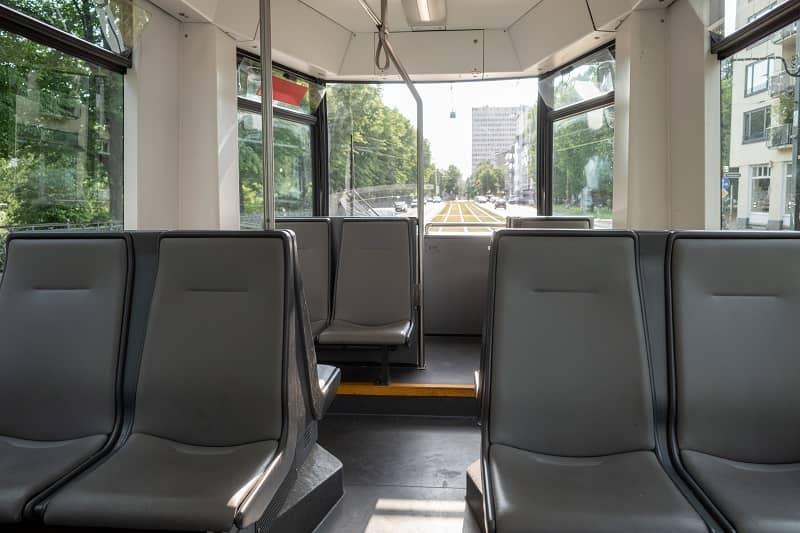
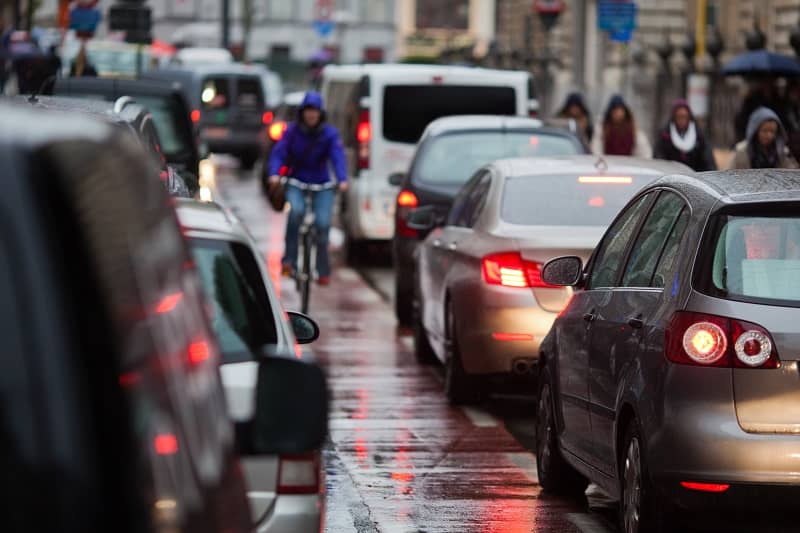
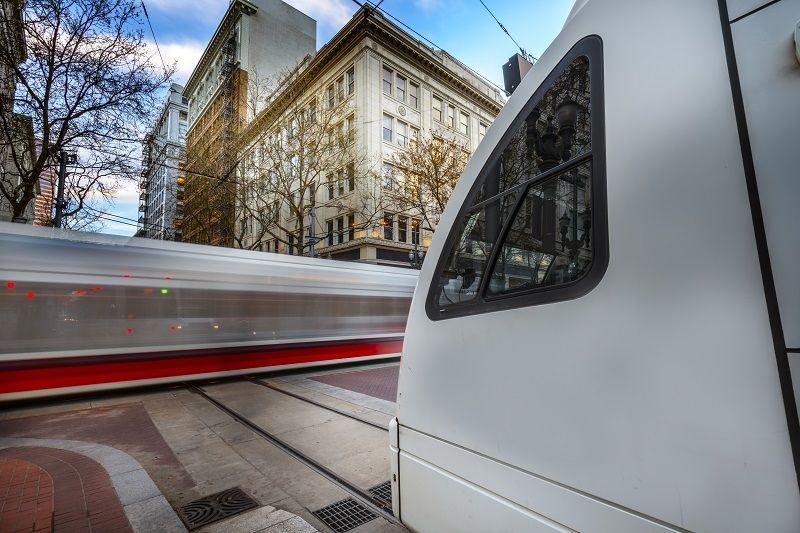

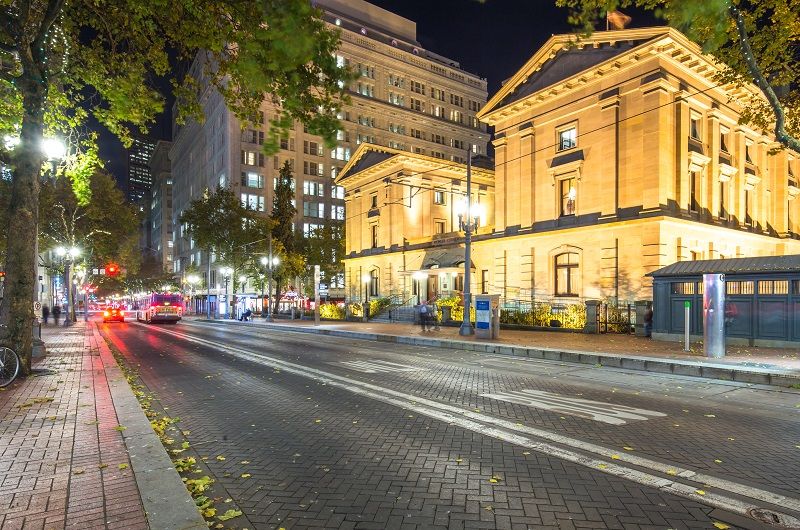



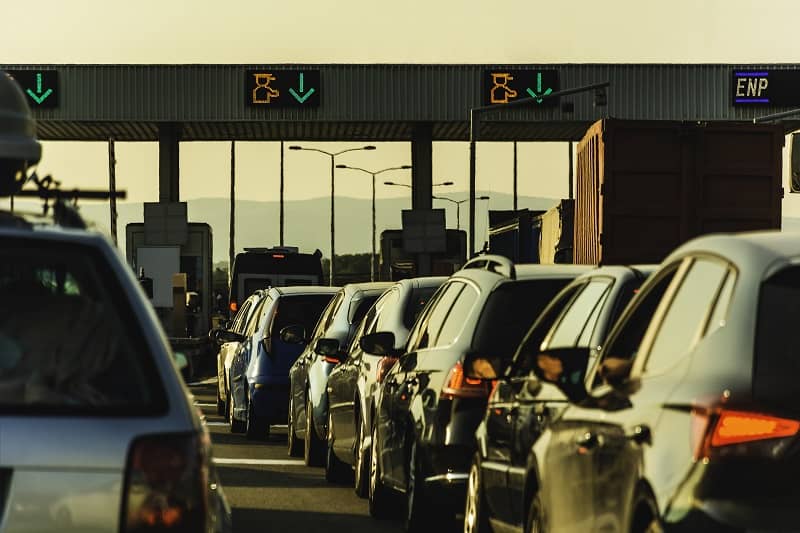


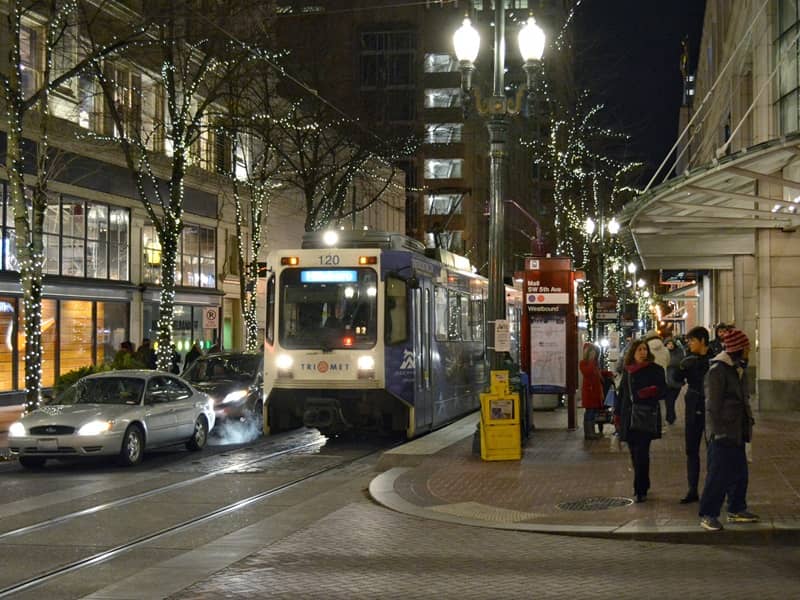
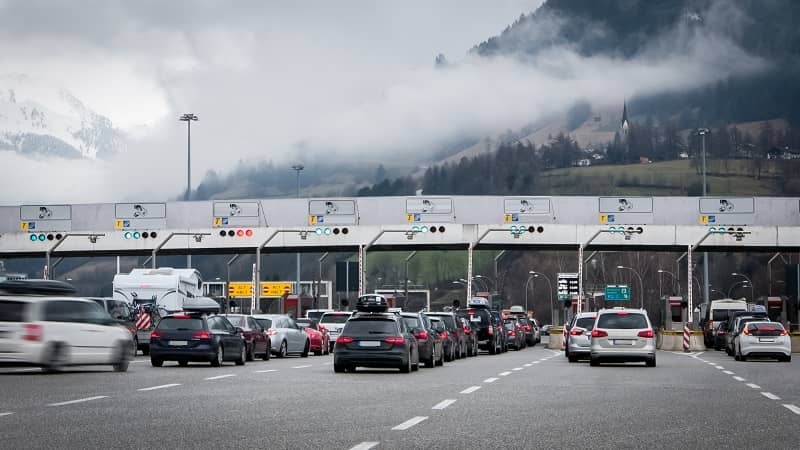
Jason Donnelly
I don’t see why Tri Met or Metro hasn’t been actively involved in this type of evaluations themselves.
I drive Division St daily and the new FX2 fast bus system is a total waste of money from construction (which was/still is a joke) thru daily operation. Is nobody looking at what Tri Met is doing ? Rarely have I seen more than 5 people at a time on their articulated buses. What is their purpose ?
Jenn
Re: 6. “To enable it to nimbly respond to changing transportation patterns, TriMet should rapidly pay down its debts and reduce unfunded pension and health care liabilities to zero.”
You do realize what those drivers are subjected to on a daily basis right? If not, then you should listen to Rose city transit, scanner on the Internet. Just pop in and listen to the drivers that are confronted with fentanyl being smoked on their buses and second hand contact of other drugs. Not to mention the drinking, and not to mention the homeless and mentally ill attacking them verbally as well as physically sometimes. Once a guy pooped himself and smeared it all over the back of the seat after the bus driver made him dump his alcohol in the trash! Yes, I know obvious mental issue. Look, and I know it’s their job they chose it. I agree, they did however, nowhere did they sign up for not being allowed to work in a safe environment. Working with the public you can never guarantee certain things safety wise, but they definitely deserve to not be physically attacked as well as exposed to dangerous substances and we all know how dangerous fentanyl inhalation is. Why do I care? Well, first of all because we all deserve to earn a living and not be put in an environment that stresses us out emotionally to that extent. Also, Because I actually became friends with a couple drivers who were so kind to me. In fact, one time they drove me home in a Trimet vehicle when there were no more buses. I find most all of the drivers for Tri-Met go above and beyond, especially if you show them some simple respect and kindness. You know the kind we all like to be shown. It may take a few times of showing them they can let their heart guard down around you, because they have to have it with all of the situations they are put in. So my question why would you want to take their retirement away from them as well as their healthcare? Maybe trimming the fat on these new projects as well as bloated executive pay, should be places that are looked at first to save. As someone who had to utilize public transportation for four years, I saw with these bus drivers go through. My hats go off to them, especially the women because I can’t imagine myself driving a bus to downtown Portland at night by myself, I just couldn’t. However, I also saw instances where people should’ve been kicked off but when they called into their boss or dispatch I’m assuming cuz it seemed like the person under the influence or mentally ill person had all the rights over passengers, who obeyed, ridership rules, and just wanted to get home, or get to work. Passengers who could ride the bus like normal people and mind our own business. Oh and 85% of people didn’t pay and acted like they were owed a ride. Some would get on, and actually act so belligerent like yell at the bus driver they don’t have any money like it was the bus driver’s fault, In all my years, riding the bus in the morning and home at night, I never ever not once saw a fare inspector. I wonder why. Could you imagine how much money they are just leaving on the table letting all the people ride for free. Don’t get me wrong. I am all for a low income vouchers however, just not paying because you think you’re owed something is a different story.